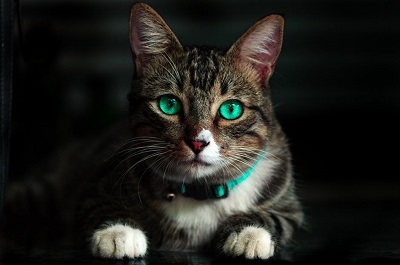Understanding Feline Allergies: Symptoms, Treatment, and More
Every year, more than 50 million Americans suffer from allergies. Things like dust, pollen, and pet dander can trigger your allergies.
But did you know animals can have allergies as well? In fact, that might be why your kitty is sneezing and coughing all the time!
It may not have occurred to you that your pet cat can have the same health issues as you do, so you might've been concerned that they had other underlying problems. But the reason for the sneezing and coughing may be as simple as feline allergies.
In this article, we'll tell you all about feline allergies so you can understand your furry friend better and get them the treatment they need.

What Are Feline Allergies?
Felines allergies are very similar to human allergies. Allergies develop because the immune system is sensitive to things in the environment, such as mold and dust.
Just like with humans, known allergens may severely bother one cat while they don't affect another at all. This makes it hard to predict whether or not your pet has allergies, since it's practically random as to which cats' immune systems won't tolerate these allergens.
There are 3 main types of feline allergies: flea, environmental, and food. We'll discuss each one in more detail in the symptoms section below.
Symptoms of Feline Allergies
Cats may sneeze and cough once in a while, so if yours does, it may not necessarily mean that they have feline allergies. If they do sneeze and cough, see if they're also wheezing. This can mean that the cat has asthma, which can be triggered by allergies.
Both flea and environmental allergies can trigger the above reactions. If you've ever had hay fever before, then these are the same symptoms that can appear in your cat should they have either of the above 2 types.
Other Common Symptoms
In addition to sneezing, coughing, and wheezing, your cat may also have itchy and runny eyes. They may also get ear infections and start snoring because their throat's swollen.
If they develop allergic dermatitis due to fleas or other environmental factors, they might start chewing at their paws or scratching at their skin.
A more serious symptom of allergies may be vomiting and/or diarrhea.
Common allergens that can cause the above symptoms include pollen, grass, mold, mildew, flea-control products, household cleaning products, perfumes and colognes, cat litter, and any prescription drugs they may be on.
Food Allergies
Your cat can develop a food allergy, even if they've been eating the same things for a while. If this happens, they'll have some gastrointestinal discomfort, such as vomiting or diarrhea.
If you notice your cat still having these symptoms after reducing exposure to the above allergens, then they may have a food allergy.
Diagnosis
The only way to tell for sure if your cat has feline allergies is to bring them to the vet. Even if it turns out to not be allergies, at least the vet can get to the root of your kitty's issues and help them feel better.
At the vet, the doctor will do a thorough exam and ask you about your cat's history. If they feel like your pet has allergies, they may order blood tests to confirm it.
In the case of skin allergies, a referral to a veterinary dermatologist may be needed.
Treatment for Feline Allergies
Because there are 3 very different types of feline allergies, the treatments your vet suggests will differ. Below are some of the common treatments for each.
Flea Allergies
In the case of flea allergies, you'll need to address the flea problem. Not only are they detrimental to your cat's health, but if you're sensitive to bites, it may affect you as well.
Have a talk with your vet to see which flea treatments are best to not only kill adult fleas but also their eggs. You'll need to rigorously keep up with these treatments to ensure that your home doesn't become reinfested.
Environmental Allergies
For things like pollen, dust, and mold, it'll help to clean your house more often and more thoroughly. This can also reduce allergy symptoms for people in your household too!
Your vet may give allergy injections, steroids, or cortisone for your cat to reduce symptoms. Antihistamines may be prescribed as well.
Another thing you may want to consider is bathing your cat every couple of days. This can help reduce allergens found on their fur. These baths can be especially beneficial if you have an outdoor cat; this can wash off everything they've gotten on their fur from the outdoor environment.
Lastly, an allergy to litter can be solved by switching brands and types. It may take a few tries to get right.
Food Allergies
Food allergies are a bit trickier to treat. You and your vet can come up with a plan to alter your cat's diet so you can figure out exactly what's triggering the allergies.
After you find the culprit, the solution can be as simple as switching to a different brand of food or as complicated as home-cooking your cat's meals. Your vet can also put your kitty on a prescription diet. Depending on what ingredient your pet's allergic to, they may also need supplements to ensure they're getting all the vital nutrients.
Get Your Pet Cat Some Relief
Now that you know all about feline allergies, you can look after your furry friends better. Whether it's the cat you currently own, or the ones you get in the future, there's always the possibility of them developing allergies.
By knowing the signs and symptoms to look out for, you'll be able to bring them to the vet more promptly and get them relief so they won't have to suffer from their allergies for too long.
Do you suspect your cat might have feline allergies? Then book an appointment with our expert vet in Abilene, Texas now.












